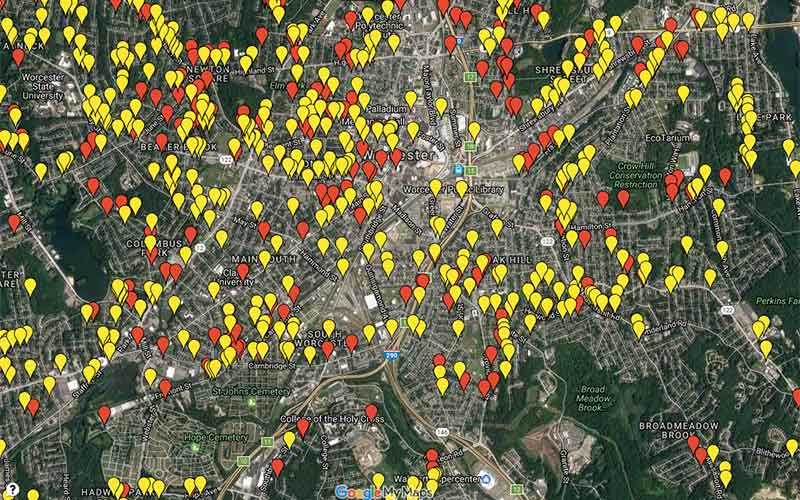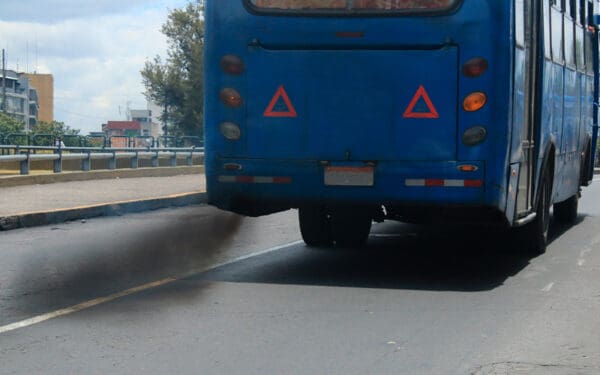
HEET is working cut carbon emissions NOW, including by mapping gas leaks. This map shows gas leaks in Worcester, Massachusetts. Photo: HEET
When CLF found Boston’s school bus contractor violated clean air laws, we sued to make them stop. Transdev Services, Inc., was allowing its buses to idle more than the state’s legal limit of five minutes – forcing students and community members to breathe in toxic tailpipe pollution. Thanks to our efforts, Transdev is taking responsibility – resulting in cleaner, healthier air for our children and neighbors. And, the company will provide funding for three local nonprofits in the communities where its pollution caused the most harm. Here, I share the story of one of these organizations.
HEET (the Home Energy Efficiency Team)
Any organization with “team” in its name has to bring people together, and HEET, based in Cambridge, is no exception. I understood HEET’s significance and its work when I met with its Co-executive Directors, Audrey Schulman and Zeyneb Magavi. HEET’s originally focused on achieving energy efficiency in local homes and buildings. Since then, it has hosted thermal scanning and solar programs and led more than 170 work parties to improve energy efficiency. “Our mission is to cut carbon emissions NOW by driving systems change. You always have to capitalize ‘NOW’,” Audrey emphasized.
More recently, HEET has switched gears to work on natural gas leaks and reduce the most harmful emissions wherever they can. “These things just have to change now, and we have to act,” Zeyneb added. And HEET acts quickly when the community needs it, as they did following the devastating gas explosions in the Merrimack Valley two years ago when HEET supplied hundreds of households with induction cooktops so families could make food and heat water during the winter months before gas was restored to the area.
HEET’s focus on work like this is why the Transdev funds will be such a help, as Audrey and Zeyneb explained. We must find more efficient ways of doing things to protect our environment, save money, and help the most vulnerable communities throughout the country. “I don’t think we can address the climate crisis without addressing the massive social, economic, and racial inequalities,” Zeyneb added. “I don’t care what it gets called… the problems have to be solved; the people need to be helped.”
One way of helping people, especially during this pandemic, is to make sure they can pay their bills, which is part of HEET’s plan for the Transdev funds. The organization plans to provide outreach to residents to access the low-income discount rate for their energy bills and enroll in energy efficiency programs that further cut emissions while reducing their bills.
As they continue their work, Audrey and Zeyneb look to building the future. “We both have kids, and we both do everything we can to ensure that the world that we hand down is as good as it can be to the next generation,” Audrey described. “And that keeps us going through everything.”
Read how Alternatives for Community & Justice (ACE) and Speak for the Trees are using funding from Transdev for the benefit of their communities.



